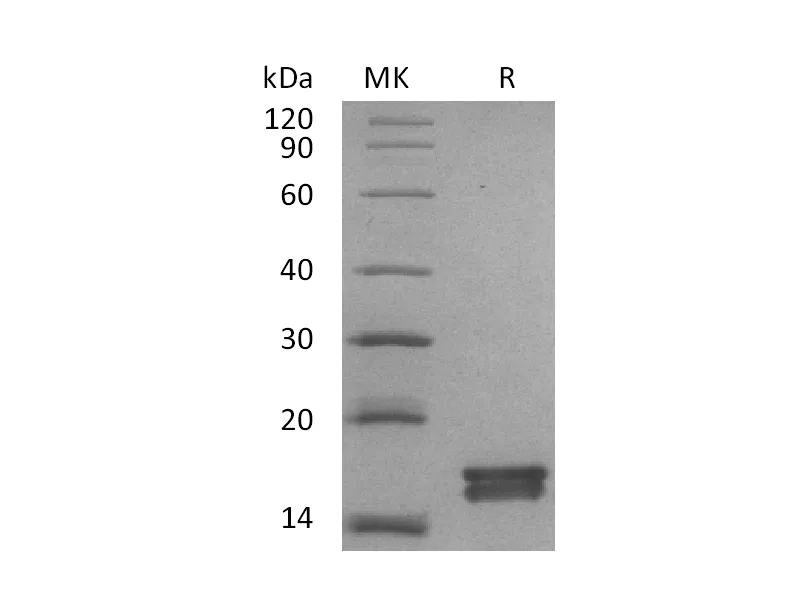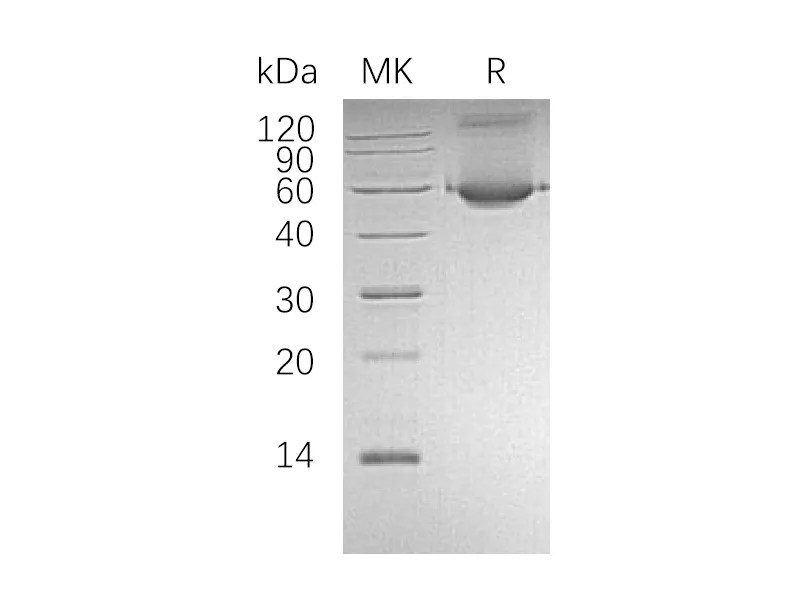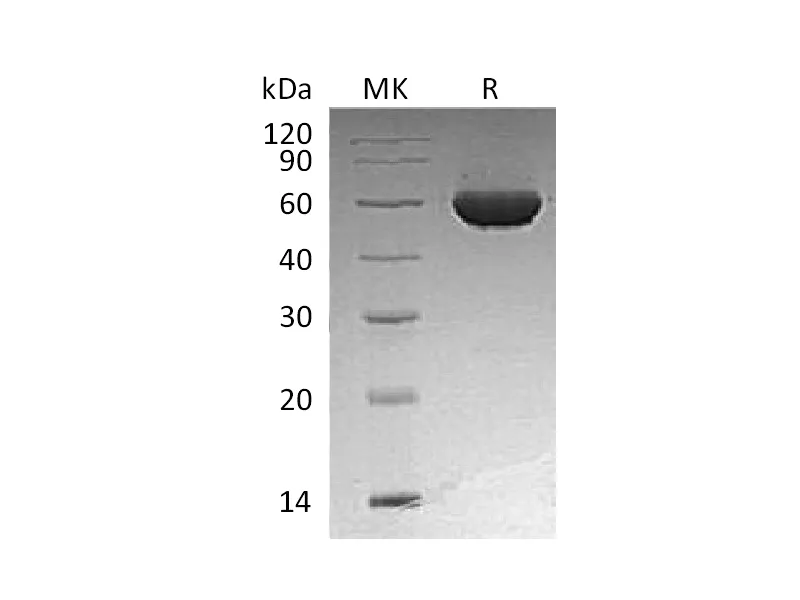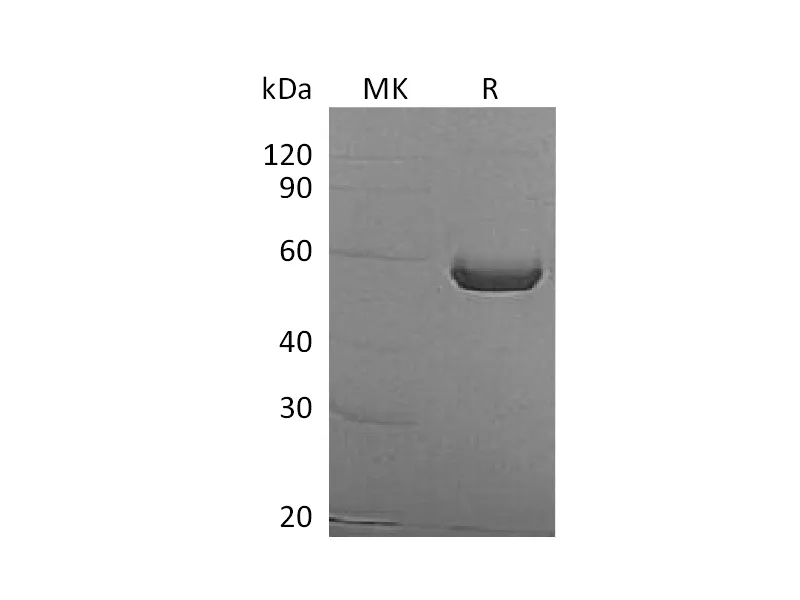Alternative Names
Bactericidal permeability-increasing protein; BPI; CAP57
Background
Bactericidal permeability-increasing protein(BPI for short), is a secreted protein which belongs to the BPI/LBP/Plunc superfamily, BPI/LBP family. It exists as a monomer or a disulfide-linked homodimer. The cytotoxic action of BPI is limited to many species of Gram-negative bacteria. This specificity may be explained by a strong affinity of the very basic N-terminal half for the negatively charged lipopolysaccharides that are unique to the Gram-negative bacterial outer envelope. BPI has antibacterial activity against the Gram-nagative bacterium P.aeruginosa, and this activity is inhibited by LPS from P.aeruginosa.
Note
For Research Use Only , Not for Diagnostic Use.






